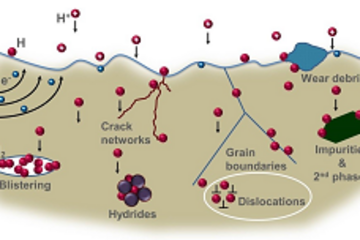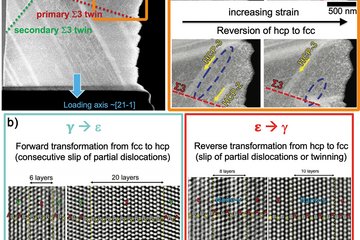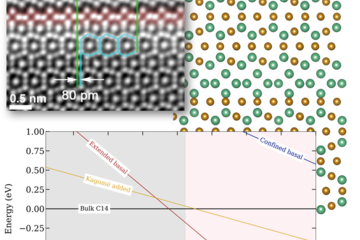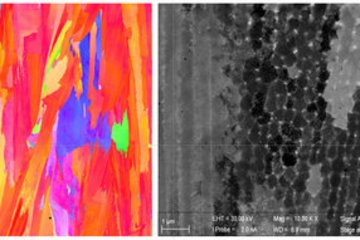All genres
61.
Talk
Ab initio determination of the magnetic free energy contribution of metallic systems. DPG Frühjahrstagung 2010, Regensburg, Germany (2010)
62.
Talk
Multi-scale study of martensite stability in Fe-based solid solutions. DPG spring meeting, Regensburg, Germany (2010)
63.
Talk
First principles study of thermodynamic, structural and elastic properties of eutectic Ti-Fe alloys. DPG Spring Meeting 2010, Regensburg, Germany (2010)
64.
Talk
Structure and Energetics of the Stacking Faults in Austenitic FeMn Alloys Studied by First Principles Calculations. APS March Meeting 2010, Portland, OR, USA (2010)
65.
Talk
Ab initio determination of the magnetic free energy contribution of metallic systems. APS March Meeting 2010, Portland, OR, USA (2010)
66.
Talk
Multi-scale study of martensite stability in Fe-based solid solutions. APS march meeting, Portland, OR, USA (2010)
67.
Talk
First principles study of thermodynamic, structural and elastic properties of eutectic Ti–Fe alloys. March meeting of the American Physical Society (APS), Portland, OR, USA (2010)
68.
Talk
Towards a First-Principles Understanding of the Iron Phase Diagram. 139th Annual Meeting of the Minerals, Metals and Materials Society (TMS), Seattle, WA, USA (2010)
69.
Talk
First principles calculations of the stacking fault energies for Mn and Fe. Computational Materials Science on Complex Energy Landscapes Workshop, Imst, Austria (2010)
70.
Talk
Stacking fault properties in high-Mn steels: An ab initio study. Computational Materials Science on Complex Energy Landscapes Workshop, Imst, Austria (2010)
71.
Talk
Ab initio determination of the magnetic free energy contribution of metallic systems. Computational Materials Science on Complex Energy Landscapes Workshop, Imst, Austria (2010)
72.
Talk
First principles study of thermodynamic, structural and elastic properties of eutectic Ti-Fe alloys. Computational Materials Science on Complex Energy Landscapes Workshop, Imst, Austria (2010)
73.
Talk
Ab Initio Interfacial Austenite/Martensite Energies for Accurate Stacking Fault Energy Calculations in High-Mn Steels. Materials Research Society 2010 Fall Meeting, Boston, MA, USA (2009)
74.
Talk
Considerations on the magnetic contribution to the free energy of Fe and related alloys. MCA-Fe. International workshop "Modern computational approaches in iron based alloys”, Ekaterinburg, Russia (2009)
75.
Talk
Thermodynamics of high-Mn steels from ab initio theory. Workshop of the SFB761 "Steel - ab initio", Salzgitter, Germany (2009)
76.
Talk
Stacking Fault Energies In Austenitic FeMn Alloys: An Ab Initio Study. Euromat 2009, Glasgow, UK (2009)
77.
Talk
Towards a first-principles understanding of the iron phase diagram. Euromat 2009, Glasgow, UK (2009)
78.
Talk
First principles simulation of thermodynamic properties of iron and iron-based alloys. Thermec'2009. International conference on processing & manufacturing of advanced materials, Berlin, Germany (2009)
79.
Talk
The accuracy of first principles methods inpredicting thermodynamic properties of metals. XVIII International Material Research Conference, Cancun, Mexico (2009)
80.
Talk
Ab Initio Thermodynamics: Status, applications and challenges. The second Sino-German Symposium on “Computational Thermodynamics and Kinetics and Their Applications to Solidification”, Kornelimünster/Aachen, Germany (2009)








